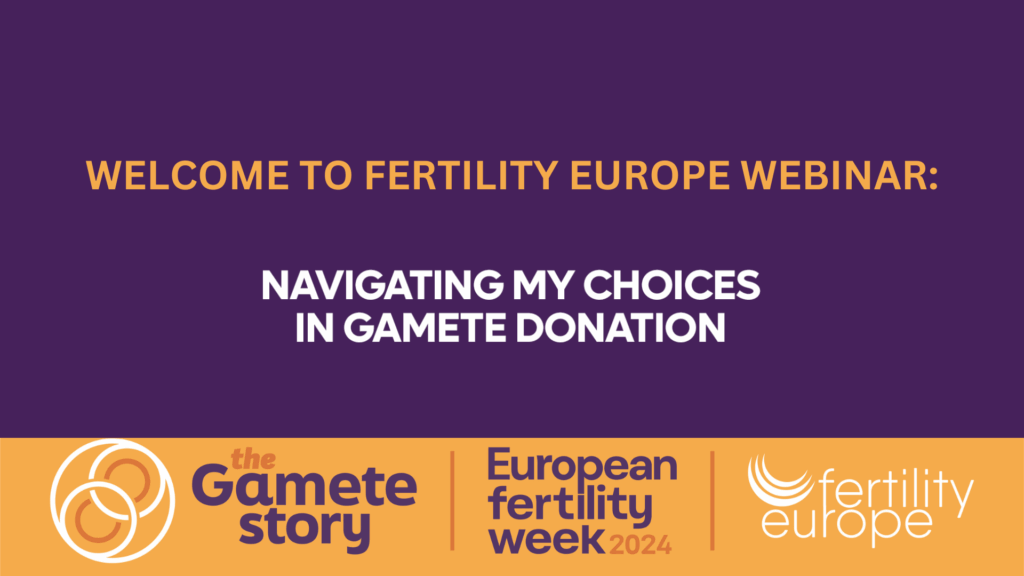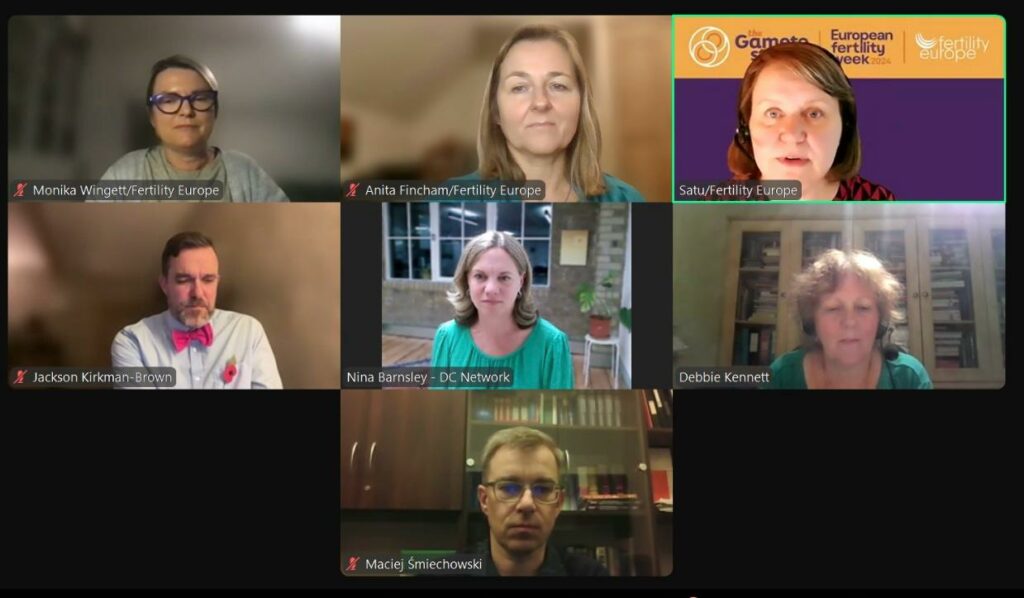Reading time: min

The webinar titled “Navigating My Choices in Gamete Donation” held during European Fertility Week 2024 focused on crucial topics for those considering or opting for gamete donation treatments. Hosted by Fertility Europe, this session featured insights from prominent speakers on discrepancies in current regulations across Europe, family dynamics, and the perspectives of non-genetic parents. It also touched on donor anonymity in the era of the growing popularity of ancestry genetic testing and shed light on an issue of the number of families using the gamete of one donor. We also shared preliminary findings from recent patient surveys on attitudes toward gamete donation.

The webinar was opened and beautifully moderated by Satu Rautakallio-Hokkanen, the General Director of Fertility Europe. Our grand speakers presented on the following:
An interactive Q&A session allowed attendees to engage with the speakers, clarifying questions about practical choices, the impact of changing regulations, and resources for support.
You can view the recorded session below
For any further questions, please do not hesitate to contact Fertility Europe at office@fertilityeurope.eu
This event offered a valuable resource for anyone navigating the complexities of gamete donation, bringing together expertise and patient perspectives to foster informed, supportive choices.
We would like to extend our heartfelt gratitude to all the speakers for sharing their invaluable knowledge and expertise with our community. Thank you!
Copyright © 2025. Fertility Europe. All rights reserved.
Design & Development: Plavi Pixel 2025.
Join our newsletter to receive heartfelt stories, expert insights, and updates from Fertility Europe.